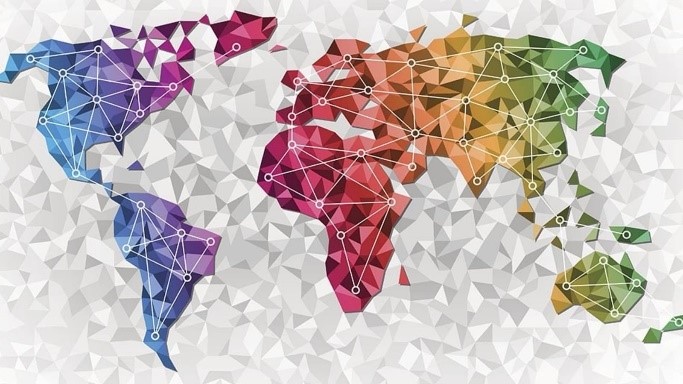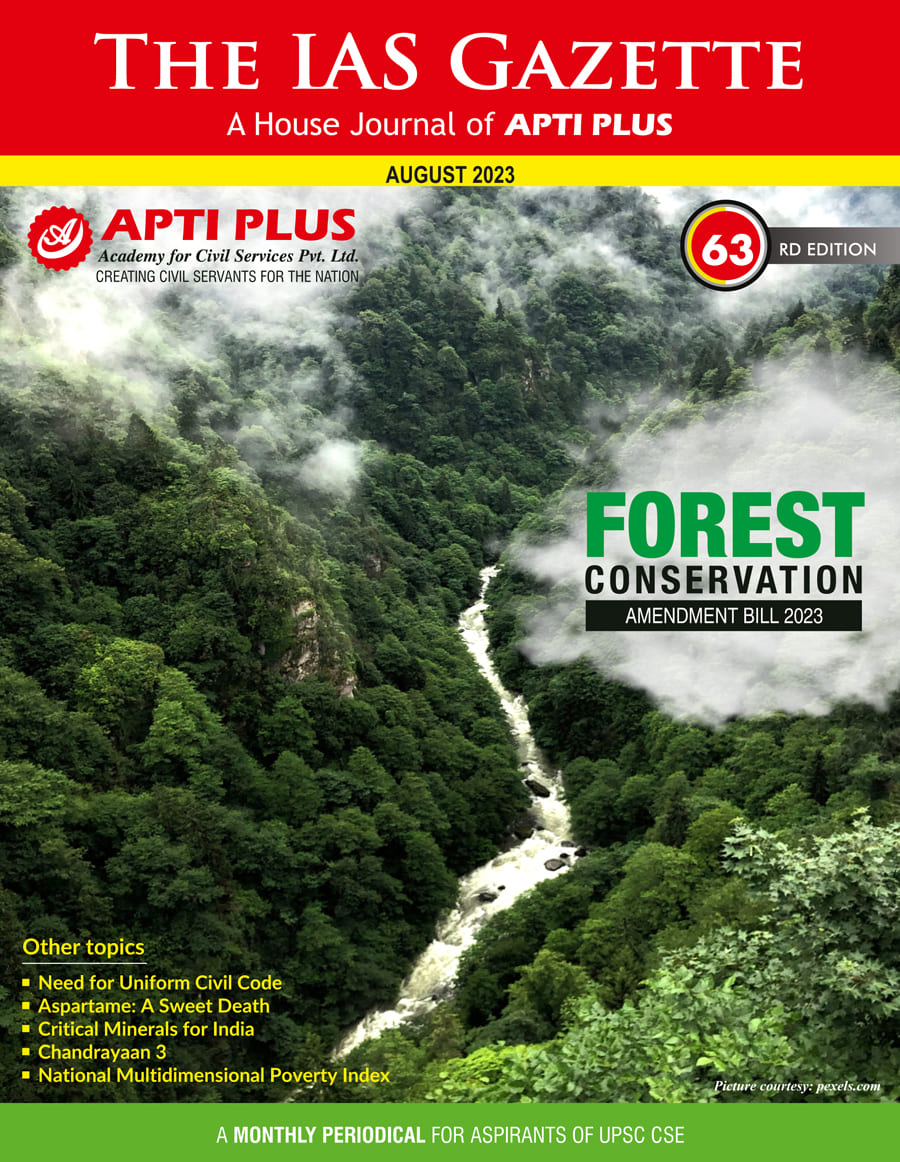Description

Disclaimer: Copyright infringement not intended.
Context
- The recent East Asia Summit in Jakarta and the G20 Summit in Delhi highlight the deep and arguably irreversible crises in the old multilateral order. Post-Cold War multilateralism is past its peak — at both the global and regional levels.
What is Multilateralism?
- While unilateralism is when one country acts alone and bilateralism is when two countries work in partnership, multilateralism is usually defined as collaboration between several countries in pursuit of a common goal, where other parties such as civil society or the private sector may also be involved.
- In this, organizations are made up of three or more partner countries with the aim of working together to solve common problems or to create favorable circumstances for all members.
- Multilateralism is based on its founding principles such as consultation, inclusion, and solidarity.
Today's main multilateral bodies include:
- United Nations (UN): Officially established in October 1945, the UN is currently composed of 193 countries and its role is to take action on the problems facing humanity. These include the maintenance of peace and security, sustainable development, human rights humanitarian emergencies, gender equality, etc.
- World Health Organization (WHO): founded in April 1948 on the principle that health is a human right and that everyone should enjoy the highest attainable standard of health, defined as "a state of complete physical, mental and social well-being and not merely the absence of disease or infirmity".
- Organization for Economic Cooperation and Development (OECD): Founded in 1961 as the successor to the Organisation for European Economic Co-operation, itself a successor to the Marshall Plan, the OECD is an international organization and its goal is to shape policies that foster prosperity, equal opportunities and well-being for all.
- In addition to these, there are dozens of organizations that, from a multilateral perspective, ensure that the majority of the planet joins forces. For example: the World Bank (WB), the International Labour Organization (ILO), the United Nations International Children's Emergency Fund (UNICEF), the Food and Agriculture Organization (FAO), the United Nations Development Programme (UNDP),

Importance of Multilateralism
- Today’s global challenges, be they climate change, poverty and inequality, or migration, are growing and they affect rich and poor countries alike.
- It is estimated that by 2050 climate change will generate 143 million more migrants in Latin America, sub-Saharan Africa, and Southeast Asia alone.
- Natural disasters, terrorism, cyber-warfare, and health pandemics are increasing at unprecedented levels.
- According to a new UNDP report, more than two-thirds of the multidimensionally poor—886 million people—live in middle-income countries, and about 440 million live in low-income countries. In Europe, 110 million citizens, or 22.4 percent of the total population are at risk of poverty or social exclusion.
- These challenges call for immediate and collective action and can be tackled only if we all put our shoulders to the wheel. This is where multilateralism plays a critical role, now, more than ever.
- Bringing the world together to defend human rights, sustain peace, and advance sustainable development for all is one of the ways we can secure a better future for people and the planet.
- Globalized problems – from climate change to financial crises to cybersecurity –Dcan be effectively addressed only through multilateral agreements.
- Multilateralism is fundamental to the liberal world order created at the end of World War II. It has been crucial in maintaining peace and prosperity.
- It has also been central to addressing the global financial crisis and promoting international financial stability.
Challenges
- Multilateralism is facing a crisis. There is a waning of concerted support, growing chauvinism, and protectionism, which are challenging the virtue of international cooperation.
- These obstacles are deterring the world from solving complex challenges that directly touch the lives of the poorest, particularly in developing countries.
- In the past years, Official Development Assistance (ODA) funding to multilateral development organizations has been on the rise, reaching an all-time high of US$63 billion in 2016. Yet, rising mistrust in multilateralism could lead to a downturn.
- The examples of multilateral negotiations that didn’t lead to a desired outcome in crucial areas are many, including for example the absence of progress in the Doha round negotiations. This negotiation deadlock results from a discrepancy between the current forms of the organization of international life dominated by the states-based approach and crucial trends shaping the global society.
Areas of Challenges
- Three main areas where the challenges to multilateralism can be identified include concepts, methods, and institutions.
- First, concepts are becoming volatile and eroded by problems of global dimension that have to be handled over national borders. Some examples include national sovereignty versus human rights concerns international criminal justice decisions, and environmental and health problems. We have reached the critical level in so far as international public law is concerned (the number of international conventions having multiplied over a few decades).
- Second, negotiation methods and techniques do not capture the complexity of modern society. On the one hand, analogies from IT such as open software mode in terms of organization, contributions, negotiation, and decision-making might be better suited to the modern challenges. The negotiation experience from the scientific and technical communities could provide helpful information in learning how to handle those challenges that are not purely political. On the other hand, the use of sectoral approaches in practice runs counter to intrinsically transversal concepts such as that of sustainable development.
- Third, the existing institutions do not reflect the increasing role of regionalism and the changing balance of power. The Security Council reform is still being discussed after a few decades, and there is a problem of inadequate voting rights of emerging and African economies in the International Monetary Fund and World Bank, despite recent progress. The rapid emergence of new global players such as BRICS has profound implications for negotiations and international governance. Emerging powers are building alliances and common positions in various international fora. African countries increasingly realize that they can better defend their interests when speaking with one voice.
- The international governance system is outdated, both in terms of the distribution of power among the states and its essentially state-based nature. As a result, these tensions lead to a major gridlock in all the main negotiation areas.
- Multilateralism is indeed more complex today than ever before.

Multilateralism and the Way Forward
- Multilateralism is a “highly demanding institutional form”, and such institutions are often vulnerable to stronger powers. However, true multilateralism is of particular importance today due to increased global and regional interdependence and new transnational challenges such as internet security, piracy in the high seas, food security, and interdependent banking systems and so on. A mind shift needs to take place at all levels, locally, regionally and globally.
- We need to rethink multilateralism and the solution must have all stakeholders engaged for it to work, a global compact that goes beyond governments.
- It is especially necessary to capture the voice of those who have historically been “voiceless”, for instance, women, youth, impoverished and fragile states, and the poor. Multilateralism could make better use of social media as a means of understanding constituents' issues and communicating with various stakeholders.
- A more current multilateral system equipped to deal with current problems and flexible enough to quickly find solutions to future problems is key. A system created in response to 20th-century problems has to evolve in order to solve 21st-century problems and those of the future. That said, above and beyond the strict observation of the issues, the multilateral system must be based on an agreed-upon set of values. For instance, no matter what the purpose of the multilateral system is (humanitarian aid, trade etc.), people and human dignity must be at the center of its concern.
- Building resilient communities to withstand shocks, economic, political, environmental, etc. combined with social equality should now become the cornerstone of multilateral approaches. This will enable sustainable development.
- To ensure the long-term functioning of the multilateral system and better yet achievement of its goals, it is essential to strengthen accountability, transparency, inclusivity and democratic partnerships.
|
PRACTICE QUESTION
Q. Multilateralism is facing a crisis as there is a waning of concerted support, and growing chauvinism, and protectionism, which are challenging the virtue of international cooperation. What are the challenges to multilateralism? Suggest a suitable way forward.
|
https://indianexpress.com/article/opinion/columns/east-asia-summit-absence-of-russian-president-vladimir-putin-chinese-president-xi-jinping-asian-neighbours-8926273/












